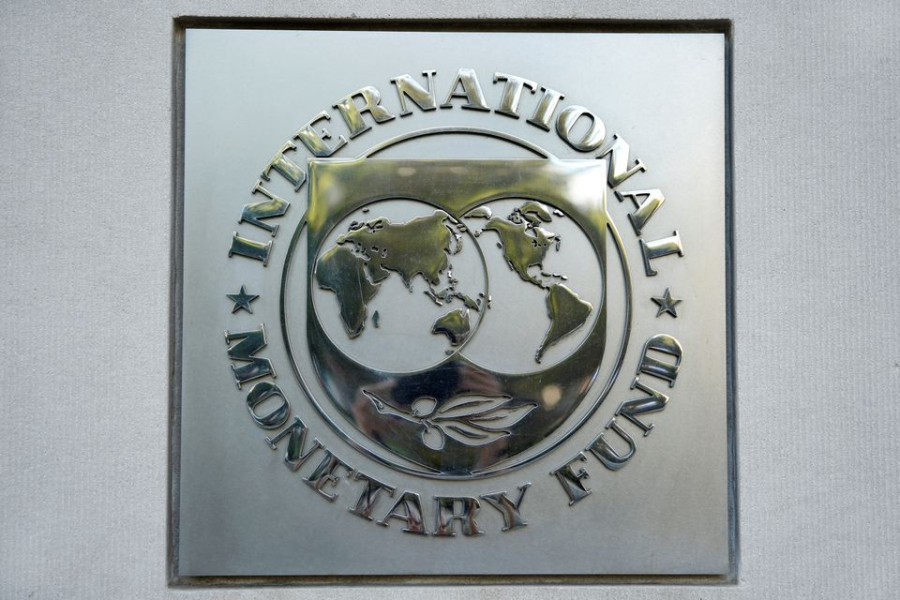Money
Nepal is in a strong position, International Monetary Fund says
Nepal’s economy is facing challenges specially on the external side and inflation, Maha Prasad Adhikari, governor of Nepal Rastra Bank says.
Krishana Prasain
Amid speculations that Nepal could face an economic collapse akin to Sri Lanka, the International Monetary Fund, on Thursday said that Nepal is in a strong position in managing the economy and financial risks.
Teresa Daban Sanchez, International Monetary Fund's Resident Representative to Nepal, said, "Nepal is still in the position of strength in terms of managing economic risks.”
Sanchez was speaking at a programme titled ‘Business and Investment Facilitation Workshop: Nepal’, organised by the US Embassy in Kathmandu on Thursday.
Sanchez said that Nepal's economic progress had been well on track till January but the Russia-Ukraine war triggered high commodity prices and led to high inflation in import-dependent Nepal.
Nepal's debt to GDP ratio is at 40 percent, which is comfortable, Sanchez said.
“The foreign exchange reserve is declining but is still adequate. The government's fiscal policy is not expansionary as expected. Tight monetary policy has been introduced and there is strong support to Nepal from development partners. That's why Nepal is in a position of strength,” she said.
Despite concerns being raised about the state of economy of Nepal amid declining foreign exchange reserves in the last fiscal, international agencies like the IMF and the World Bank have yet to show a red flag on Nepal's economy.
"Tightening of the monetary policy will help to maintain international reserves without the need to control import restrictions that could exacerbate inflation and impede growth" said Sanchez.
“The measures taken by the government and central bank are indicating a silver lining in recent months with improvement in FDI, export of new commodities, tourists arrival and remittances flow,” said Maha Prasad Adhikari, governor of Nepal Rastra Bank.
Nepali economy is facing challenges specially on the external side and inflation, he said.
The country’s annual imports bill reached Rs1.92 trillion last fiscal year, rising by 24.72 percent.
Nepal’s inflation reached a 70-month high in June and there are signs that it will breach the double-digit mark by the end of the fiscal year ending mid-July.
According to the Nepal Rastra Bank’s macroeconomics report, the year-on-year inflation reached 8.56 percent in the first 11 months of the last fiscal year ended in mid-June. It was 4.19 percent in the same period last fiscal year.
The speaker in the programme highlighted the improved policies for foreign direct investment.
Nepal Rastra Bank has liberalised its policies for foreign investment, Adhikari said.
Investment protection along with repatriation investment profit has been ensured, he said. There is significant improvement in the entry and exit process, government clearances and institutional arrangement and facilitation, he said.
“With USAID, Millennium Challenge Corporation (MCC), US Development Finance Corporation and others, the US government’s financial support to Nepal will be in access of $1 billion over the next 5 years,” said Manny P Micaller Jr, Chargé d’Affaires at the US Embassy Kathmandu, Nepal.
“We want to see more American companies, investors, products and services available in Nepal. Attracting quality foreign investment, products and services require a supportive and stable business and investment climate,” he said.
The MCC project will also present business opportunities for foreign companies in Nepal and hopefully enable more partnerships between Nepali and international forums, he said.
Nepal received a foreign direct investment pledge for 14 projects worth Rs550 million from the US, in the last fiscal year 2021-22 creating jobs for 729 with most of the investment committee for small-scale industry, according to the Department of Industry. Such investment pledges for the US stood at Rs1.67 billion for 7 projects in the previous fiscal year 2020-21.
According to the Department of Customs, imports from the US increased by 156.41 percent in the last fiscal year 2021-22 compared to the previous fiscal year 2020-21 as Nepal imported goods worth Rs50 billion in the last fiscal year.
Nepal’s trade deficit with the US was worth Rs32 billion in the last fiscal year 2021-22.




 11.12°C Kathmandu
11.12°C Kathmandu













